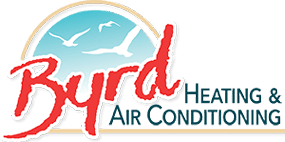Air quality plays an important role in your overall health. When you think of pollution, you might think of cars spewing exhaust or factories sending billowing clouds of smoke into the air. What might come as a surprise is that the air within your Meldrim, Georgia, home or office building is often much worse than the air you breathe outside. Protect yourself and those around you by learning the risks of poor indoor air quality and improving the air you breathe.
Recurring Health Problems
One of the reasons that many property owners put off taking action against poor indoor air quality is that they underestimate the consequences of exposure over long periods of time. Polluted indoor air can affect you from the moment you take a breath. Those who already suffer from breathing and lung conditions, such as asthma and COPD, tend to feel much worse when they’re in buildings with contaminated air. Airborne pollutants can worsen asthma symptoms, making it more difficult to breathe. Examples of these pollutants include wood particles, pesticides, smoke, fuel, asbestos and carpet particles.
Mold Growth
Poor air quality can also occur as the result of mold growth in a home or office building. When your air conditioner can’t remove the excess moisture in the air, or you’ve recently experienced a leak or flood, mold may start to grow. It’s hard to know for sure if you have mold growing in your building since it tends to stay hidden in dark, rarely accessed areas such as attics, basements, crawlspaces, and behind walls. You can have the structure tested if you suspect that there is mold. Mold spores can decrease the indoor air quality in your home and cause allergic reactions.
Allergic Reactions
Some of the most common symptoms of allergies to indoor pollutants include headaches, itchy eyes, congestion, dizziness, fatigue, sore throat, coughing, sneezing, and nosebleeds. Some of the symptoms are similar to those you might experience when you’re coming down with a cold, so many people tend to misdiagnose their condition. When the symptoms disappear as soon as you leave the building, this is a clear sign that you’re having an allergic reaction to pollutants. Don’t ignore symptoms, even if they seem minor.
Having your HVAC system cleaned will also reduce the risk of mold growth. Too much moisture within the cooling system is common, especially when you live in an area that has high humidity during the year. Cleaning the vents will eliminate any spores that might be starting to spread in the ducts. Another way to reduce the risk of mold growth is to invest in a dehumidifier, which can pull additional moisture out of the air.
Long-Term Health Problems
If you continue to live or work in a facility with unhealthy air, you could start noticing worsening symptoms and more serious health problems. Some people have reported experiencing recurring headaches, chills, lethargy, nausea, and fevers after prolonged exposure to bad air. You could even face issues like respiratory disease, heart disease, or cancer. With the risk of such concerning health problems, it’s well worth the time and effort to monitor the indoor air quality in your home and office.
Higher Energy Bills
Poor indoor air quality can also lead to higher utility bills. As particles float around within your home, those settle in the HVAC system and decrease efficiency. When your system can’t operate at peak efficiency, it has to use more energy to heat and cool the same amount of air. Excess debris can also clog your filter, which reduces air flow and efficiency by as much as 15 percent.
Wear on the System
When the air in your home or office building is contaminated, the dirt and debris can move into the heating and cooling system and settle on the components. Build-up on the evaporator coil, motor, and other parts of the system can restrict how freely they can move, leading to unnecessary wear that could require extensive repairs or replacement.
We provide regular maintenance to make sure that your home or office building has clean, healthy air. Talk to the experts at Byrd Heating and Air Conditioning about how to improve indoor air quality at 912-373-8447.
Image provided by Shutterstock


